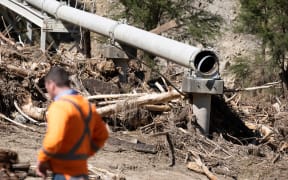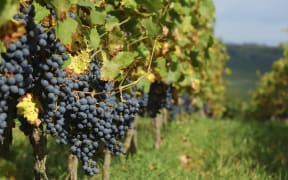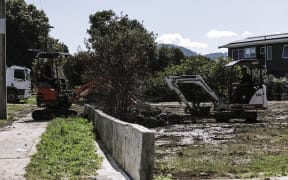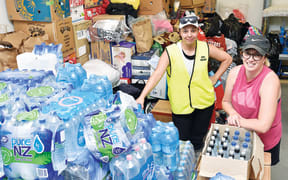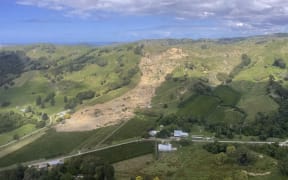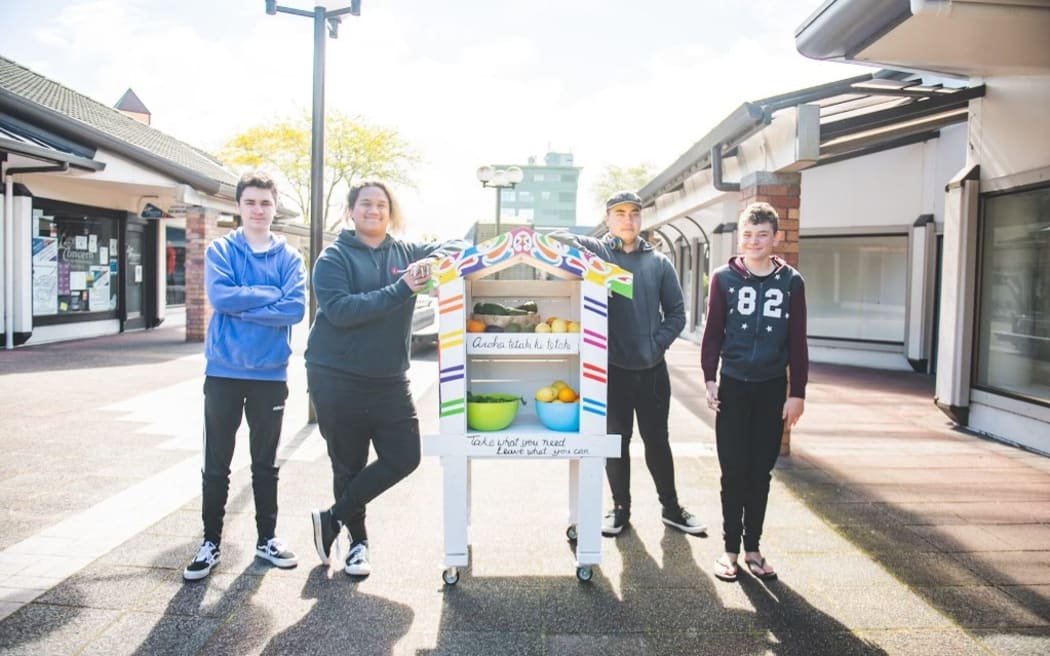
Rangatahi involved in creating the pātaka kai, (from left) Te Atau, Tane, Dakota and Mokoia. Photo: Supplied / Tiaki e!
Tāiki e! in Gisborne's central city is billed as a collaborative space with an agenda for social and environmental action. It has a team of people of all ages, from all over the region, who were perfectly placed to step in and lend a land when the bad weather struck. Some of them spoke to reporter Kate Green about their work during times of disaster, and beyond.
Walking into Tāiki e! was like entering a cosy living room.
Desks looked out onto the Gisborne central city street through large windows curved around a group of squashy sofas, and in the kitchen, a coffee machine hummed.
Mac Wynne had her legs tucked underneath her on an armchair. At 18, she worked full-time as a rangatahi entrepreneurship activator at Tāiki e!
Mostly, she just did what needed doing, she said.
When Civil Defence kicked into gear in the aftermath of Cyclone Gabrielle, Tai Rāwhiti's young people were not about to be left out.
The week following the storm was filled with power and communication outages and immense flooding.
The Tāiki e! hub on Peel Street acted as a drop-in centre for people looking for news and connection, and donations of food were left in their "free kai" stall out the front for those who needed it more.
Soon enough, the team was busy unloading trucks at the Salvation Army, packing planes down at the airport, and putting together food boxes to be sent up the coast alongside charity, Supergrans.
"We've got the people here who have the drive to help, so we were able to go out and do that help," Wynne said.
"But now that the immediate response has sort of ceased, we're going and looking at longer-term solutions."
Crucial infrastructure like water, power and internet were knocked out by the cyclone.
Wynne said there were plenty of ways people could be helped to be better prepared.
"We've had a lot of conversations about being more self-sufficient in houses and communities, and talking about how we can educate people in growing their own food so they're less reliant on the supermarkets."
She said innovation often came from challenge.
"Once something comes that breaks the norm and puts you outside of your comfort zone, you're more likely to realise the real problems that are going on."
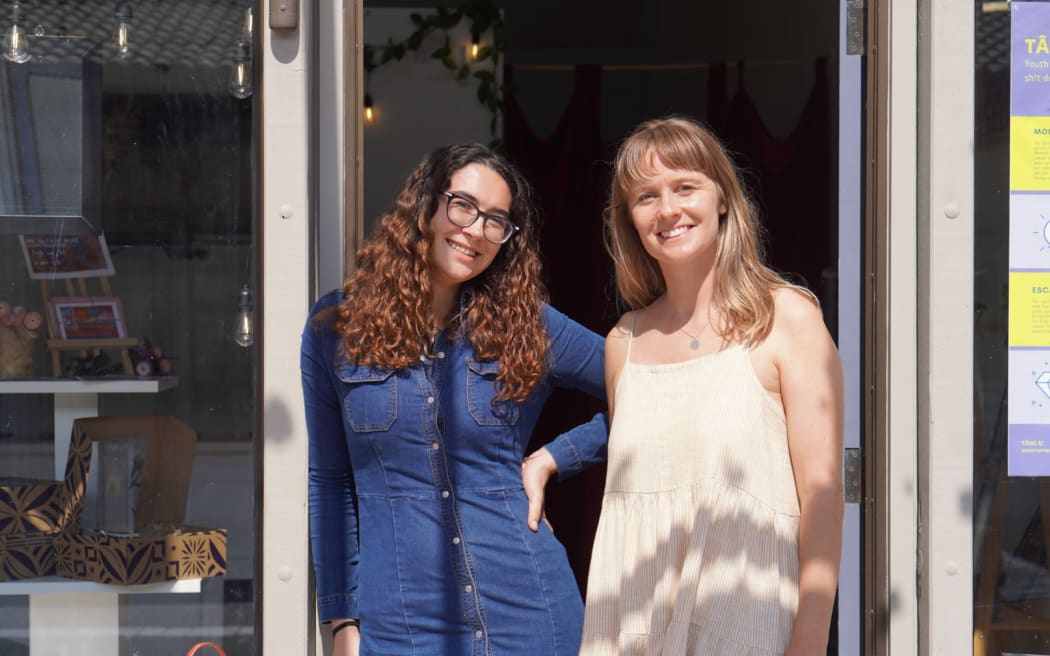
Mac Wynne (left) and Steph Barnett. Photo: RNZ / Kate Green
As well as the immediate response, Tāiki e! was playing the long game.
Youth innovation co-ordinator Steph Barnett said manpower was in demand, and provided, but it was about more than that.
"There are some things that long-term are going to continue to be really impactful, like people being empowered to start their own businesses, or start their own social enterprises, or become part of a strong community."
Considering the financial impacts of Cyclone Gabrielle, building financial resilience as well as strong and connected communities would continue to be important.
Trust Tairāwhiti data and information lead Malcolm Mersham said the cyclone had exacerbated existing problems.
"We've been talking about these things for years now," he said. "Since first engaging in this space, we've talked about community resilience, the ability to grow your own food, power [and] connectivity up the coast."
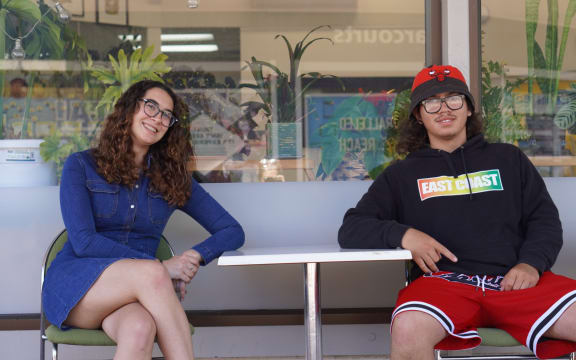
Mac Wynne (left) and Manawa Harrison. Photo: RNZ / Kate Green
It wasn't all about disaster relief.
On Wednesday morning, Manawa Harrison (Ngāti Porou) was heading out "on a pick".
"We go to people's properties and pick from their trees - we call it 'Pikup'," he said.
Pikup was designed on a "third-third-third model", Wynne said. A third of the fruit went back to the owners, a third to 12 pātaka kai - storehouses for food - around the city, and a third to the pickers themselves.
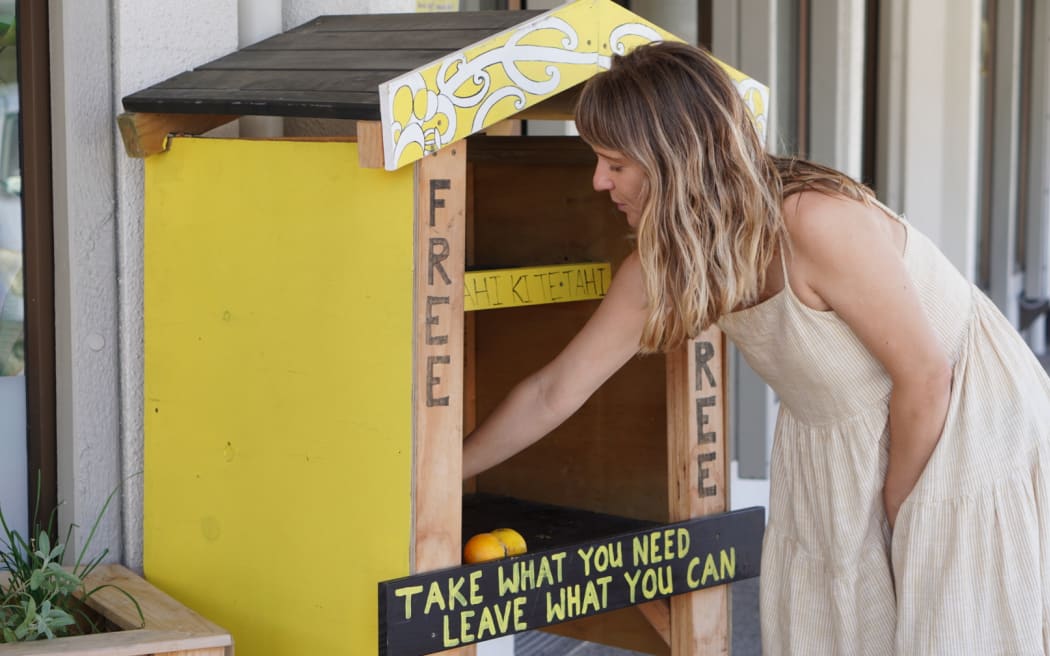
Tiaki e! youth innovation coordinator Steph Barnett with the pātaka kai outside the Peel St hub. Photo: RNZ / Kate Green
"They can use that for whatever they want - juicing, their own personal use, or they can make a business out of it if they want to.'
Anyone could sign up to have their fruit picked, Wynne said. Last year, they picked 5.5 tonnes of fruit.
Tāiki e! also had an escape room built by the community, which allowed their pop-up shop to remain rent free for rangitahi use.
Barnett said a tech design and makerspace for the community to use was currently in development, called Haututu Hacklab.
Wynne also produces a podcast, collecting and sharing stories of impact from the community.
"What comes along with the privilege of having this space is I need to try and make it available for other people, hold the door open for the next person behind me, and find a way to allow other young people to be able to share their voices," she said.

